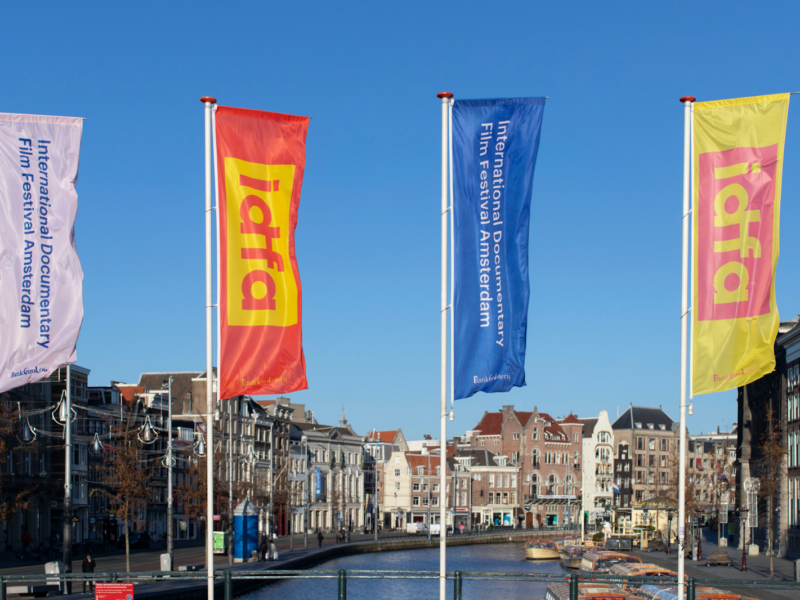
Critics calling out music festivals for greenwashing
This article was originally published by Wilhelmine Preussen over at Politico and can be found here.
European music festivals have been attempting to jump on the climate bandwagon — with one mega event this summer even inviting EU green deal chief Frans Timmermans to speak.
But while the musical jamborees trumpet their climate credentials and court EU policymakers, activists and scholars accuse some festivals of greenwashing and a lack of transparency over their sustainability data.
From England’s Glastonbury to Belgium’s Tomorrowland to Spain’s Primavera Sound, festivals have outlined the measures they are taking to combat climate change and become more sustainable. But whether reality matches the promoters’ rhetoric often remains unclear, as hundreds of thousands of people fly across the Continent to enjoy days of consumption and excess.
It’s time for music festivals to shed the risk of greenwashing, stop “showing off initiatives” and start “enforcing them,” said Dogan Gursoy, professor at Washington State University and author of a book on the climate impacts of festival tourism.
While Timmermans dialed in remotely in late July to Tomorrowland’s Love Tomorrow sustainability conference, a side event at the festival, the enormous transport carbon footprint remains music festivals’ biggest climate problem.
“A lot of festivals emphasize waste reduction, but if you look at the overall picture of carbon emissions, it is dominated by travel. Audience festival travel emits 11 times more climate pollution than waste does,” said Kimberly Nicholas, professor and sustainability scientist at Sweden’s Lund University.
Timmermans was undeterred — though he didn’t actually mention music festivals in his remarks at the Tomorrowland conference. “You are the people of tomorrow, eager to contribute, ready to step up and open to what may come. It is the exact attitude we need to tackle the climate crisis and to stop and reverse ecocide,” he told the audience.
Tomorrowland, held in July in the small Flemish town of Boom near Antwerp, this year attracted 600,000 electronic music fans from around the world, over three weekends of revelry. While promoting green initiatives like a “fun and easy” recycling club and a partnership with a circular water company, Tomorrowland also drew climate criticism after boasting about “party flights” in collaboration with partner Brussels Airlines to reach the venue.
A spokesperson for the festival said Tomorrowland had a long way to go to reach its climate goals, it isn’t looking to “greenwash” and that a sustainable power plan should be available by 2026.
Beyond the mass transit issues, many of Europe’s music festivals remain heavily dependent on diesel generators to keep their bars, food courts, stages and campsites running.
And, crucially, green data is difficult to find, so it’s hard to hold festivals to account.
“We found in the past that only 20 percent of the festivals [assessed by AGF] were calculating their carbon footprint,” said Claire O’Neill, head of the U.K.-based advisory group A Greener Festival.
“If it comes to measurements and CO2 calculations you see that [data collection] is really just starting,” said Laura van de Voort, co-founder of Dutch knowledge-sharing platform Green Events, adding that innovative tools are becoming more available for festivals.
A small group of pioneering festivals lead by example, but a large number is still taking too little action, she added.
And as festivals continue to grow in popularity — Tomorrowland attracted its largest-ever crowd in 2022— it’s going to be difficult to offset the negative effects of mass transit.
A report on the U.K. festival industry from the Vision 2025 climate action network published in 2020 said that, “despite greater engagement and action around sustainable practices, the environmental impacts of the festival industry have gone up overall since 2015, driven by the growth of the industry.”
Festival promoters insist their events aren’t a lost climate cause, though.
“If you can measure it, you can manage it,” said Mitchell van Dooijeweerd, sustainability manager at Amsterdam’s DGTL festival, which won the AGF’s award for the world’s most sustainable electronic music festival in 2019.
DGTL introduced in 2017 a tool to analyze flows of materials, water, mobility and energy during the event. It has culled parking spaces to disincentivize travel to the venue by car and provides cheap public transport. DGTL also teamed up with a clean-energy tech company to help power the festival site.
And there are some positive voices in the sustainable events community who see a world in which music festivals could become shining examples to follow.
Festivals are perfect “living labs” for the real world as they resemble artificial cities, said Stijn Lambert from Ecofest. Tech can be tested and ideas exchanged on a grand scale. Some major festivals, including DGTL, Belgium’s Pukkelpop and Denmark’s Roskilde, signed a deal with the Dutch government in 2019, committing to becoming fully circular and climate-neutral by 2025. The Dutch ministry for infrastructure and water management stresses that other festivals, cities and governments should be taking those lessons on board.
But eyeing the mobility issues, climate scholars remain wary of bombastic predictions. “We can’t have hypermobility if we want a fast and fair transition to a fossil-free world. There is basically no low-carbon way to do that at scale,” said Nicholas from Lund University.






